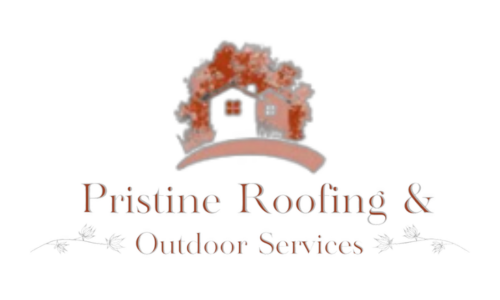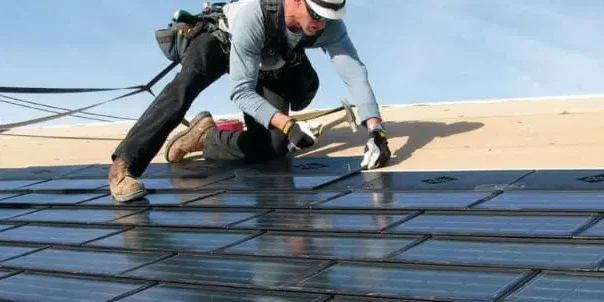Maintaining a sturdy and reliable roof is critical for any commercial building. Timely local commercial roof repair is essential to avoid potential disruptions caused by roof failures. In this guide, we will explore the various aspects of commercial roofing, helping business owners make informed decisions about maintenance, repairs, and replacements. With a focus on identifying issues and selecting the right professionals for local commercial roof repair, this guide aims to equip you with all the necessary information.
Understanding Commercial Roof Types
Common Materials Used in Commercial Roofing
Understanding the materials used in your commercial roof is the first step to effective maintenance and repair. Common materials include metal, membrane roofs such as EPDM, TPO, and PVC, and built-up roofing (BUR). Each material offers different benefits and challenges in terms of durability, cost, and suitability for various climates.
Pros and Cons of Different Roof Types
Choosing the right type of roof involves weighing several factors. Metal roofs are durable and fire-resistant but can be more expensive. Membrane roofs offer excellent water resistance and are easier to install, whereas BUR, the traditional tar-and-gravel roof, is cost-effective and durable but requires significant maintenance.
Identifying Your Roof Type
Knowing your roof type helps tailor your approach to local commercial roof repair. If unsure, consult a professional who can provide a detailed assessment and advice on the best maintenance strategies, which are crucial for prolonging the life of your roof.
Signs of Roof Damage
Visible Signs of Wear and Tear
Regular inspections can reveal visible damage such as cracks, water stains, leaks, or surface blistering. These signs indicate that local commercial roof repair services may be necessary to prevent further deterioration.
Hidden Problem Indicators
Some signs of damage are not immediately visible. Structural deformations, unusual noises, or sudden increases in energy bills can suggest hidden problems that might require more extensive repairs.
Routine Inspection Tips
Conducting routine inspections can prevent minor issues from becoming major problems. Use basic tools like binoculars or drones to inspect the roof safely from the ground or above, and schedule professional inspections at least once a year.
Choosing a Local Roof Repair Contractor
Criteria for Selecting a Contractor
When selecting a contractor for local commercial roof repair, ensure they are licensed, insured, and have a good reputation. Check their specialization to confirm they have experience with your type of roof.
Understanding Repair Quotations
A good repair quote should include a detailed list of services, materials, and the total cost. Compare quotes from different contractors to ensure you are getting the best value for local commercial roof repair.
Contract Essentials
Ensure the contract includes details about the scope of work, timeline, costs, warranty, and clauses on termination and dispute resolution. A comprehensive contract protects both parties and ensures clarity throughout the repair process.
Common Roof Repair Methods
Patching and Partial Replacements
For localized damage, patching or partial replacements can be effective and cost-efficient methods of local commercial roof repair. These methods are suitable for minor issues that do not compromise the overall integrity of the roof.
Full Roof Replacement
Severe or widespread damage may necessitate a full roof replacement. This involves removing the old roofing material and installing a new roof, which can significantly extend the lifespan of your building.
Innovative Repair Technologies
Stay informed about the latest in roofing technology, such as liquid-applied membranes and infrared moisture detection, which can make local commercial roof repair more effective and less intrusive.
DIY Roof Repair: Dos and Don’ts
Simple Repairs You Can Do Yourself
For minor issues, such as cleaning gutters or patching small leaks, DIY repairs can be a cost-effective option. However, ensure you have the necessary tools and knowledge before attempting any repairs.
Risks of DIY Roof Repairs
DIY repairs can be risky. Improper repairs can lead to further damage or void warranties. For significant issues, it’s best to rely on professional local commercial roof repair services.
Essential Tools for DIY Roof Repair
If you decide to undertake DIY repairs, invest in quality tools such as ladders, hammers, sealants, and safety gear. Proper tools will make the job easier and safer.
Preventative Maintenance Strategies
Regular Maintenance Schedules
Developing a regular maintenance schedule is key to extending the life of your roof. Perform seasonal checks and cleanings to avoid accumulations that could lead to larger problems.
Long-Term Care Tips
Adopt proactive measures like regular inspections and timely repairs. Techniques to extend roof life include proper drainage, debris removal, and periodic resealing or coating.
Cost-Benefit Analysis of Maintenance vs. Repair
Regular maintenance can be more cost-effective than major repairs. A well-maintained roof requires fewer local commercial roof repair interventions and can significantly reduce long-term expenditure.
Handling Emergency Roof Repairs
What Qualifies as an Emergency Repair
Situations such as major leaks, structural damage from storms, or collapsed roofing elements require immediate attention. These emergencies can threaten the structural integrity of the building and must be addressed promptly.
Steps to Take in an Emergency
In an emergency, mitigate damage by applying temporary fixes like tarps or sealants and contact a local commercial roof repair service immediately. Prioritize repairs based on safety and the extent of damage.
Preparing for Weather-Related Emergencies
Develop a response plan for potential weather-related damages. Regular inspections and maintenance, coupled with a good relationship with a local commercial roof repair company, can minimize the impact of severe weather.
Navigating Insurance and Roof Repairs
Understanding Coverage Options
Familiarize yourself with your insurance policy to understand what types of damage are covered and under what conditions. This knowledge is crucial when filing claims for local commercial roof repair.
Filing a Claim for Roof Repair
Document the damage thoroughly and contact your insurance provider promptly. Follow their process for filing a claim to ensure you receive the appropriate coverage for the repairs.
Maximizing Insurance Benefits
To maximize your benefits, maintain good records of all maintenance and repairs and ensure compliance with insurance requirements. This proactive approach can facilitate smoother claims for local commercial roof repair.
Sustainability and Eco-Friendly Roofing Options
Green Roofing Materials
Explore eco-friendly materials such as recycled shingles or green roofs. These options not only reduce environmental impact but can also improve energy efficiency and reduce operating costs.
Solar Panels and Roof Integration
Consider integrating solar panels with your roofing. This can reduce energy costs and provide a sustainable power solution, while also potentially increasing your property’s value.
Improving Energy Efficiency through Roofing
Enhance your building’s insulation and ventilation to improve energy efficiency. Efficient roofing can significantly reduce heating and cooling costs, making it an environmentally and financially smart choice.
Legal and Regulatory Considerations
Compliance with Local Building Codes
Ensure your roofing repairs and replacements comply with local building codes to avoid legal issues. Regular updates on code changes are important for maintaining compliance.
Dealing with Zoning and Permits
Obtain necessary permits and understand zoning laws related to roofing work. These regulations can affect the scope and timing of your local commercial roof repair projects.
Handling Contractor Disputes
If disputes arise, refer to your contract for guidance on resolution procedures. Effective communication and legal advice can help resolve disputes amicably and prevent costly litigation.
Future Trends in Commercial Roofing
Technological Innovations
Stay informed about new roofing technologies and materials that can make repairs more efficient and cost-effective. Innovations in the industry can provide opportunities for better and more sustainable roofing solutions.
Market Trends and Material Availability
Understanding market trends can help you anticipate changes in material costs and availability. Planning for these fluctuations can ensure that your roofing needs are met without unexpected expenses.
Adapting to Climate Change
As weather patterns become more unpredictable, building roofs that can withstand various climatic conditions is becoming crucial. Future-proofing your roof against extreme weather can prevent frequent and costly repairs.
Frequently Asked Questions (FAQs)
What are the signs that my commercial roof needs repair?
Common signs include visible damage like cracks, leaks, and tears, water stains on the interior ceilings, increased energy bills (indicating poor insulation), and debris accumulation. If you notice any of these signs, it may be time to consider a professional inspection.
How often should I have my commercial roof inspected?
It’s recommended to have your commercial roof inspected at least twice a year, ideally in the spring and fall, to assess any damage from the winter or summer and prepare for the coming seasons. Additionally, inspections should be conducted after major weather events like storms or heavy snowfall.
What is the typical lifespan of a commercial roof?
The lifespan of a commercial roof varies depending on the materials used and the quality of installation and maintenance. Generally, commercial roofs can last anywhere from 20 to 40 years. Metal roofs and high-quality membrane systems tend to have longer lifespans.
Can I repair my commercial roof myself?
While minor repairs and maintenance like cleaning gutters and patching small leaks can often be handled in-house, major repairs should be performed by professionals. DIY repairs can lead to further damage or void existing warranties if not done correctly.
What should I look for in a local commercial roof repair contractor?
When choosing a contractor for roof repair, look for licensing, insurance, and good reviews. Experience in working with commercial roofs similar to yours is crucial. Also, ensure they offer detailed quotes and warranties for their work.
How much does commercial roof repair cost?
The cost can vary widely based on the extent of damage and the type of repair required. Minor repairs may cost a few hundred dollars, while more extensive repairs or complete replacements can run into the thousands. Always get multiple estimates to ensure a fair price.
What are the benefits of regular roof maintenance?
Regular maintenance helps extend the lifespan of your roof, prevent leaks, reduce repair costs over time, and ensure your roof remains compliant with any warranty requirements. It can also improve energy efficiency by ensuring proper insulation and ventilation.
How can I extend the life of my commercial roof?
Proper maintenance is key to extending the life of your roof. This includes regular inspections, timely repairs, keeping the roof clean from debris, and ensuring proper drainage. Consider a maintenance contract with a reliable service provider to ensure consistent care.
Are there eco-friendly options for commercial roof repair?
Yes, many companies offer eco-friendly materials and methods for roof repair, such as recycled or sustainable materials, cool roofing options to improve energy efficiency, and green roofs that support plant life.
What is the fastest way to fix a leaking commercial roof?
The fastest temporary solution is to apply a waterproof roof sealant or patch to the affected area. However, it’s important to contact a professional roofing contractor for a permanent fix, especially to identify and address the root cause of the leak.
Conclusion
Local commercial roof repair is a critical aspect of maintaining your property’s value and functionality. By staying informed and proactive, you can ensure that your commercial roofing needs are met with efficiency and foresight. Remember, the longevity of your roof depends on the quality of care it receives—make maintenance and timely repairs a priority to safeguard your investment.







